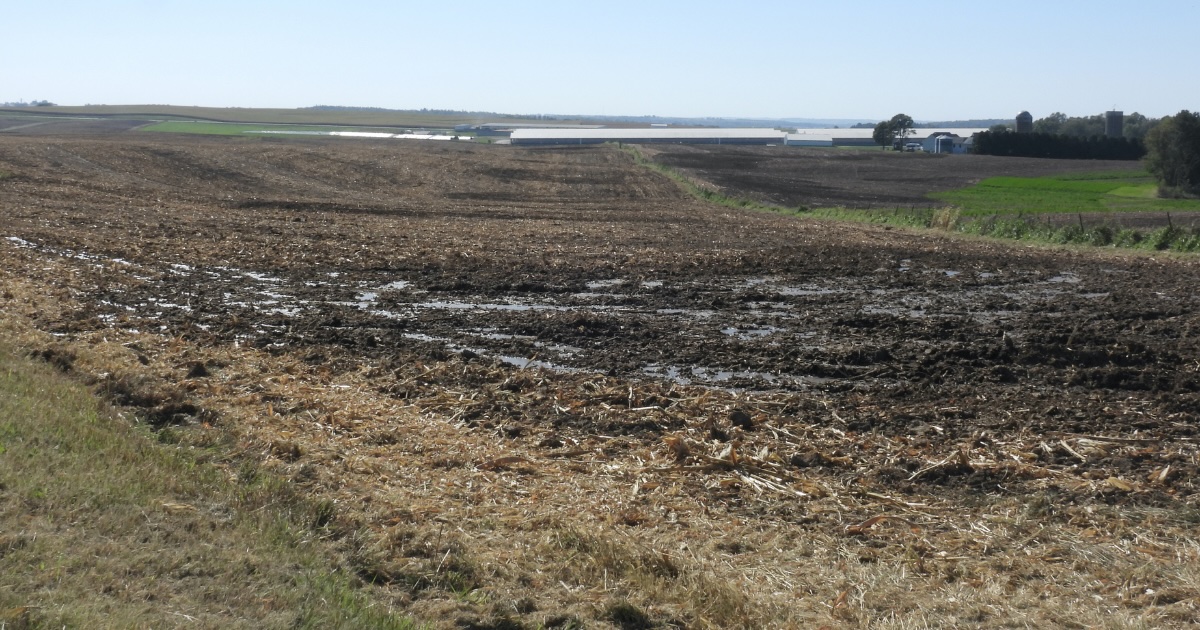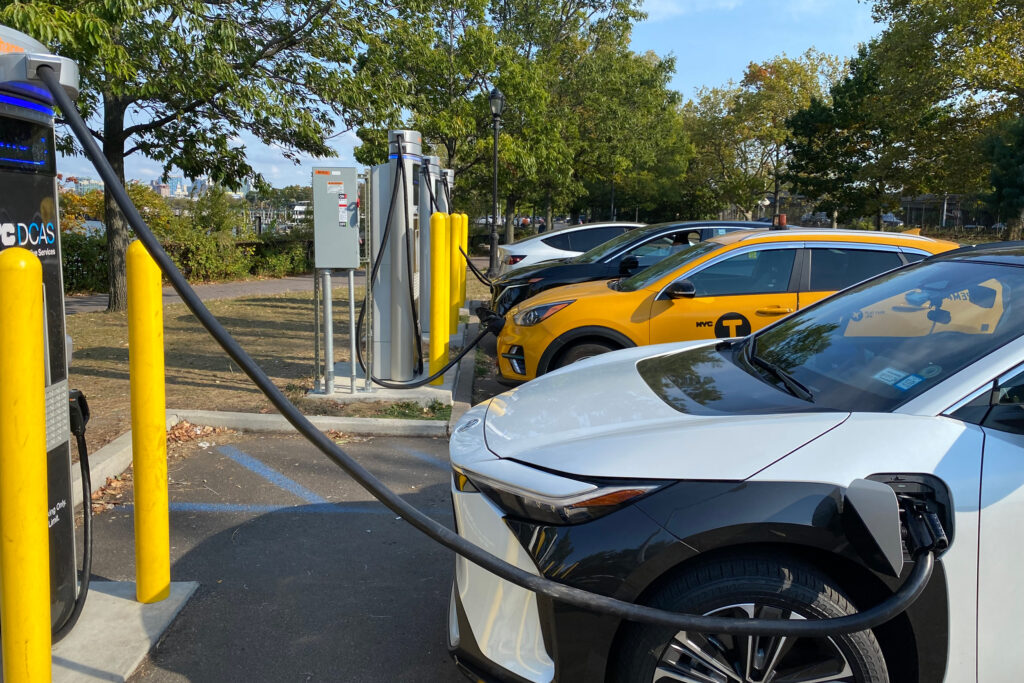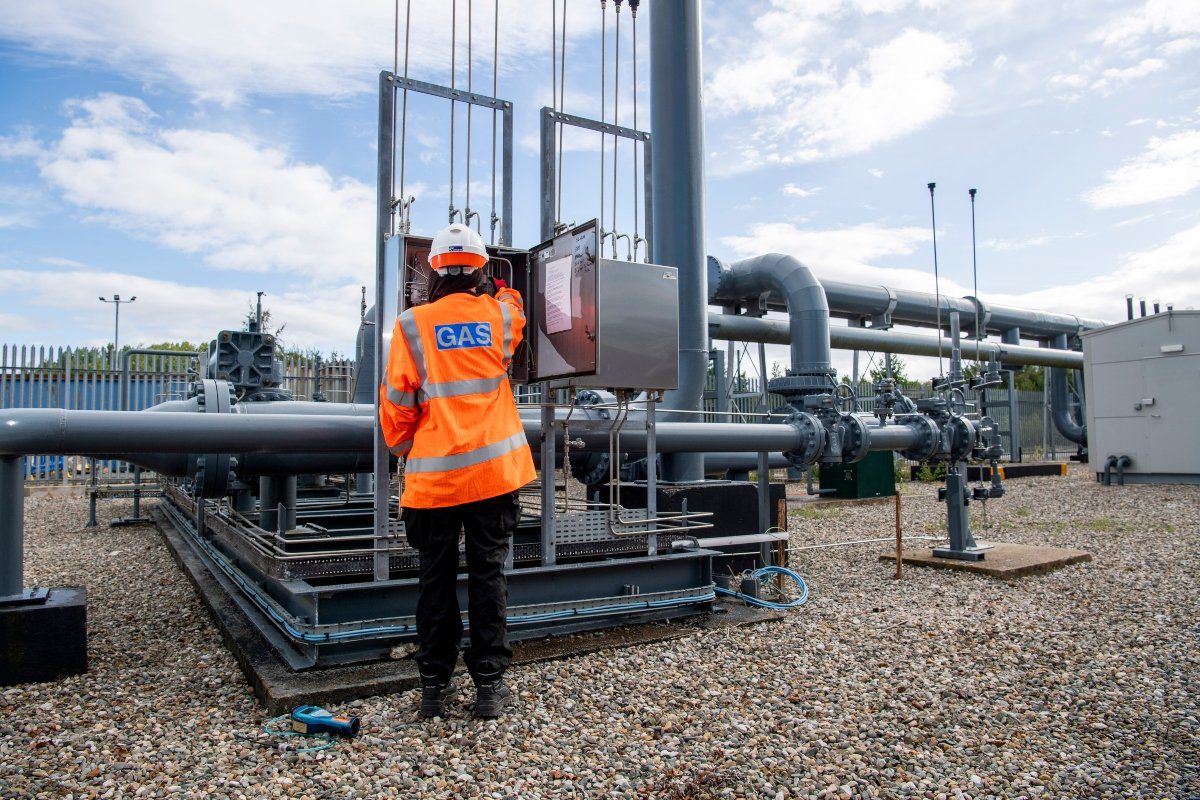A Houston-based company’s first effort to turn plastic waste into the chemical feedstocks for new plastic products has crumbled amid unanswered questions about its technology, trouble securing the necessary permits and rising community opposition.
Encina Development Group announced last week that it was pulling the plug on its proposed Point Township Circular Manufacturing Facility, two years after it announced the project would be built in a central Pennsylvania cornfield. The company had touted it as one of the largest in the country, representing a $1.1 billion investment along the Susquehanna River, about 60 miles north of the state capital of Harrisburg.
Local environmental advocates at first thought the so-called “advanced recycling” plant sounded like a promising solution to a global glut of plastic waste. But they later came to distrust the company and oppose its project, which they concluded would have used vast amounts of energy and more closely resembled a plastics incinerator than an actual recycling facility.
We’re hiring!
Please take a look at the new openings in our newsroom.
See jobs
This week, they expressed relief that Encina announced it was looking elsewhere to commercialize its proprietary catalytic pyrolysis technology, which the Environmental Protection Agency continues to regulate as an air polluting incineration process, not a recycling regime. The environmentalists also said they stand ready to help any other community fight against Encina, if and when the company announces a new site for its first plant.
The proposal had drawn mixed opinions from local elected officials, and at least one this week said he’s disappointed in what he saw as a lost opportunity for new jobs and added tax revenue. But others cited the project’s heavy industrial footprint as a serious concern.

In the end, the project might have been doomed from the start by coming to a community that’s very close to a college town—Lewisburg, home of Bucknell University. There, environmental advocates tapped the expertise of faculty and the passion of students to fight the plant and its unproven, controversial technology, which fueled regional and national concerns about air issues, protecting water quality of the Susquehanna River, and the quality of life in a semi-rural swath of forested hills farmers fields.
“The Encina press release said it was some kind of business decision they made,” said Sandy Field, a medical and science writer with a Ph.D. in biochemistry who helped organize Save Our Susquehanna, an informal grassroots group that worked to stop the plant.
“But I think it was local opposition,” said Field, who is also active with the Climate Reality Project’s Susquehanna Valley Chapter in Pennsylvania. “We’ve had two years of public meetings, placing yard signs, writing letters to the editor, meeting with local leaders, and getting the word out. All of that raised awareness and concerns about this project.”


For their part, Encina representative Alison Jahn said company officials anticipated “varying degrees of support and opposition.
“Our choice to focus on other sites was based on a variety of economic and logistical facts which evolved over the detailed engineering period and was not a result of the concerns raised by some in the community,” Jahn said.
Dispute Over ‘Circular Economy’
Regional economic development officials bought the 100-acre site in Point Township and leased it to Encina, citing economic benefits from the company’s financial investment like providing 750 construction jobs and 300 full-time jobs at the plant.
The company said it would turn 450,000 tons of plastic waste annually—some 100 trucks a day—from urban centers like Pittsburgh, New York and Philadelphia, into benzene, toluene and xylene to serve as feedstocks for the new plastics. The plan was to ship the chemicals to other manufacturing plants along a rail line next to the river.
The proposal was part of a push by the chemical and plastics industries to develop what they call “advanced” forms of recycling intended to help solve a global plastic waste crisis and create a “circular economy” for plastics.
Encina planned to ship benzene, toluene and xylene by rail on tracks along the Susquehanna River in Point Township, Penn. Credit: James Bruggers/Inside Climate News
Countering those claims, national environmentalists and independent experts have, meanwhile, cast doubt on the viability of chemical recycling, including methods involving pyrolysis, such as what was planned by Encina. In general, pyrolysis heats plastics, which come from fossil fuels, at high temperatures in an oxygen-free environment, turning it into synthetic gases, as well as char residue and a type of oil that can then be turned into fuel or chemical feedstocks.
Two environmental groups, Beyond Plastics and the International Pollutants Elimination Network, in a report last fall, concluded that chemical recycling of plastic waste “has failed for decades, continues to fail, and there is no evidence that it will contribute to resolving the plastics pollution crisis.”
Environmentalists say any talk of a “circular economy” for chemical recycling of plastic amounts to greenwashing, given the energy required, the carbon emissions produced, and the paucity of waste plastic that actually becomes new plastic products. Much of chemical recycling, they say, is essentially incineration that produces new fossil fuels.


“This type of greenwashing of the plastics industry relies on the narrative that these are successful plants that are converting plastic waste into usable products,” said Alex Bomstein, executive director of the Clean Air Council, a nonprofit advocacy group that helped local environmental advocates in their fight against Encina. “The reality is time and time again that this is smoke and mirrors.”
The Clean Air Council was closely scrutinizing the permit process and last fall noted that Encina was found to have a long list of deficiencies in a proposed water discharge permit. Last summer, the company acknowledged the plant was two years behind schedule, with full operations to begin in late 2026 instead of in 2024.
Chemical Plant Sparked Outcry
Inside Climate News visited central Pennsylvania two years ago and found local officials and residents grappling with the Encina proposal. In theory, many were receptive to the idea of recycling plastic but some felt they weren’t getting straight answers from the company about its technology and how the plant would affect everything from truck traffic, to air and water quality, to scenic views and the property values of their homes.
Randall Yoxheimer, chairman of the locally elected board of supervisors in Point Township, observed at the time that there was so little information forthcoming that it was hard to discern the promises from reality—a position he has maintained.
“I don’t know, with this proprietary technique they have, how safe it is or how effective it is,” Yoxheimer said in an interview on Tuesday. “We never had any ability to make any kind of evaluation.”


He also said the company early on did not develop enough political support or do the preliminary work needed to help it secure permits from state and regional regulators before it made a big splash with its billion dollar announcement in 2022. The announcement put a target on the company for opponents, who then had time to organize opposition and fight the plant, he said.
Yoxheimer said he tried to stay in the middle of the issue, not working to block the plant, but also recognizing “my first watch is the health, safety and welfare of the residents who elected me.”
And then all last year, new questions emerged.
The proposal was found to violate a Point Township building height restriction, prompting the company to go back to the design drawing board.
Local critics raised concerns that washing and shredding of plastic waste at the plant could contribute to microplastics already found in the river and some of its fish, after new research on microplastics and recycling in Scotland was published in May in the Journal of Hazardous Materials Advances.
Additional research showing the same process of cleaning and processing incoming plastic waste and discharging wastewater could also flush toxic per- and polyfluoroalkyl substances, or PFAS, into the Susquehanna River, a major source of drinking water for millions, stirred even more opposition.
Field said local residents also asked questions about worker and community safety after Inside Climate News reported on another plastics chemical recycling plant in Indiana that was struggling to start up and was troubled by fires, spills and worker safety issues.
Opposition gained more traction earlier this month, when the governing council of Northumberland, a borough a few miles downriver from Point Township, passed a resolution “strenuously and unequivocally” opposing Encina’s plant.
Borough Mayor Daniel Berard said the company never explained how they would protect the local environment or people of the community.
“I don’t think they wanted the public to know what they really were doing,” Berard said in an interview Tuesday. “They used a lot of word salad to make it sound like they were doing us a favor and we should embrace what they offered. In reality, they were describing their quote advanced recycling plant that was actually a toxic chemical plant that is an experiment that was unproven.”
Among his concerns were the added rail cars of toxic chemicals that would roll through his community, concerns that were heightened after the Norfolk Southern derailment of vinyl chloride tank cars, and the resulting chemical disaster and fire that sent deadly black smoke billowing over the East Palestine, Ohio, area last year.
Other elected officials this week lamented the company’s announcement, including Northumberland County Commissioner Samuel J. Schiccatano.
“It’s a great loss for us,” Schiccatano said of Encina’s announcement, citing lost jobs and lost opportunity to grow the local tax base. “It’s not every day you get a company bringing in a billion dollar plant.”
‘Three Strikes’ And You’re Out?
For its part, the company, in an emailed response to questions, suggested the Pennsylvania site ended up being too small.
“The scope of the design for the Point Township site had to be changed due to increased demand from our customers,” said Jahn, the company’s chief communications officer. “This increase in demand required a larger design.”
Her emailed statement also defended the company’s technology, saying it had been “successfully tested and proved at various scales at a process demonstration unit in San Antonio, Texas.”
Independent experts, however, offered several potential factors that could have played into the company’s decision to abandon the Pennsylvania project.
Eric J. Beckman, a professor emeritus in the University of Pittsburgh Department of Chemical Engineering, said economic stumbling blocks could have included low prices for virgin plastics feedstocks, which would undercut Encina’s business model. High interest rates could have also been a barrier to financing the plant, he said.
“Perhaps the technology simply didn’t work very well as in pilot studies? Maybe it was a combination of these issues,” said Beckman.
This story is funded by readers like you.
Our nonprofit newsroom provides award-winning climate coverage free of charge and advertising. We rely on donations from readers like you to keep going. Please donate now to support our work.
Donate Now
Jan Dell, a chemical engineer who founded the plastics-oriented environmental group The Last Beach Cleanup and worked as an industry consultant for decades, said she believes the company had at least three fatal flaws: unproven technology at commercial scale, lack of funding and strong community opposition.
“Three strikes and they are out,” she said, adding that “just one of the fatal flaws was enough to stop it.”
Local environmental leaders will now work to let elected leaders and economic development officials know they want a different kind of economic development in the region. They are looking for an economic future that relies on clean air and water and includes recreation and tourism, Field said.
Save Our Susquehanna “has moved from celebrating this win, to ‘we don’t want to push (chemical recycling of plastics) onto any other communities’, so we will see where Encina goes,” Field said. “We will let other communities know what we found out.”

















